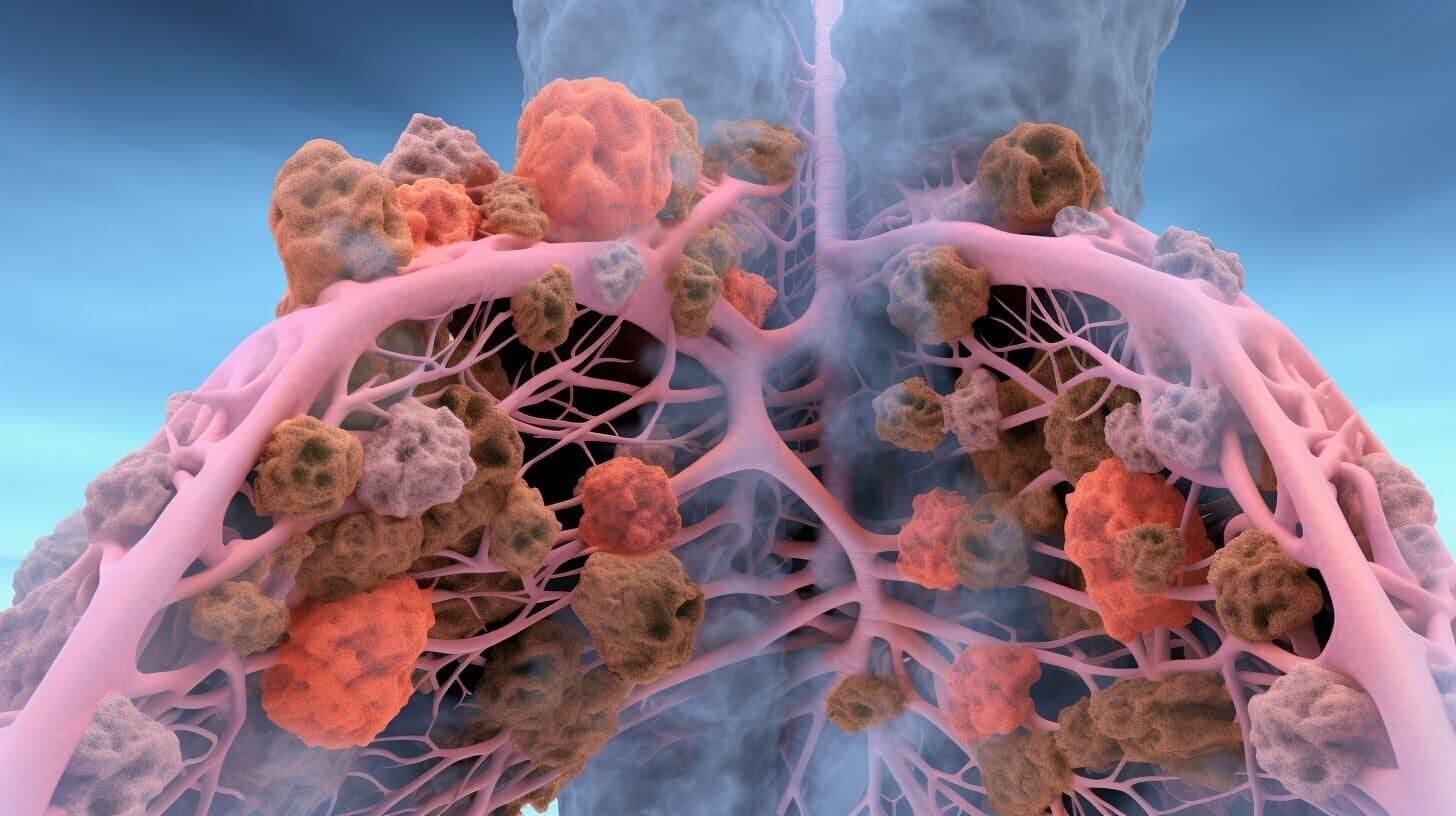KEY TAKEAWAYS
- The study investigated SUMOylation’s role in anti-PD-1 immunotherapy resistance in lung cancer and its effect on peripheral blood lymphocyte survival.
- Researchers found that dysregulated SUMO machinery induces anti-PD-1 resistance by increasing peripheral lymphocyte death.
The majority of patients with lung cancer develop drug resistance to anti-PD-1 immunotherapy, resulting in reduced survival rates. While previous research has linked epigenetic abnormalities, such as methylation, to the clinical response to anti-PD-1 therapy, the involvement of SUMOylation in resistance mechanisms remains poorly understood.
Ying Wang and the team aimed to assess the impact of dysregulated SUMO machinery on anti-PD-1 immunotherapy resistance and its role in peripheral blood lymphocyte survival.
They performed an inclusive analysis of the mRNA expression of 15 SUMO machinery components in PBMCs from patients with lung cancer receiving anti-PD-1 immunotherapy, using real-time PCR. Based on the percentage change in mRNA levels, they evaluated the relationship between the expression of SUMO machinery components and the outcomes of anti-PD-1 therapy, as well as the influencing factors of SUMOylation.
Additionally, PBMCs were treated with various concentrations of 2-D08, a specific SUMOylation inhibitor, in vitro. The activation and death rates of lymphocyte subsets were subsequently analyzed by flow cytometry.
About the results, a predictive method based on the gene expression of 3 SUMO machinery components (SUMO1, SUMO3, and UBE2I) was developed to distinguish non-responders to PD-1 inhibitors. Additionally, the number of lymphocytes in peripheral blood was significantly reduced in the dysregulated SUMOylation groups (the percentage change >100 or -50 ~ -100 groups).
In vitro studies confirmed that a slightly low SUMOylation level improved the activation status of T and NK lymphocytes, whereas an extremely low SUMOylation level led to increased lymphocyte death rates.
The study concluded that dysregulated gene expression of SUMO machinery components could induce resistance to anti-PD-1 immunotherapy in lung cancer by upregulating the death of peripheral blood lymphocytes. These findings suggest that SUMO machinery components may serve as effective circulating biomarkers for predicting the efficacy of anti-PD-1 therapy and reveal a novel regulatory mechanism of resistance.
The study was funded by The Science and Technology Innovation Platform of Jilin Province (YDZJ202202CXJD050), The 12th Youth Found of The First Hospital of Jilin University (JDYY11202134) and The Training Program for Excellent Young Teacher of Jilin University (419080500583).
Source: https://pubmed.ncbi.nlm.nih.gov/39211047/
Wang Y, Sun C, Liu M, et al. (2024). “Dysregulated gene expression of SUMO machinery components induces the resistance to anti-PD-1 immunotherapy in lung cancer by upregulating the death of peripheral blood lymphocytes.” Front Immunol. 2024;15:1424393. Published 2024 Aug 15. doi:10.3389/fimmu.2024.1424393



